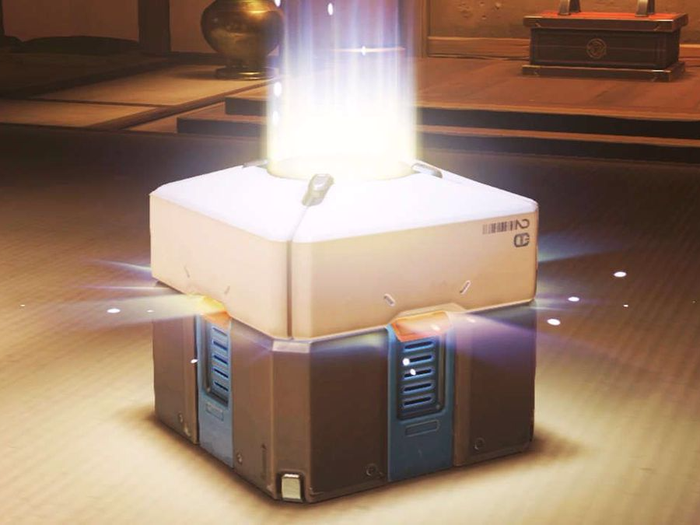From Loot Boxes to ETFs: Understanding Risk Like a Pro Gamer
If you’ve ever opened a loot box, rerolled an item, or gambled for a rare drop, congrats — you’ve already been managing risk. As gamers, we’re no strangers to chance and probability. But what if I told you those same instincts could help you understand something way bigger: investing.
When I first started learning about the stock market, it felt like a whole new game. Words like “diversification,” “volatility,” and “ETF” sounded intimidating. But then I realized — investing isn’t that different from gaming. It’s just risk and reward, with your money instead of your loot.
What Are ETFs, and Why Do They Matter?
Think of an ETF — short for Exchange-Traded Fund — as a “bundle” of investments. Instead of buying one single stock (like throwing all your gold into one weapon upgrade), an ETF spreads your investment across many companies.
For example, a tech ETF might include shares of Microsoft, Nvidia, Apple, and AMD all in one package. That way, if one company dips, the others can balance it out. It’s like equipping your RPG character with balanced gear instead of relying on one overpowered sword that might break mid-battle.
High-Risk vs Low-Risk: Just Like In-Game Choices
Remember that time you had to choose between opening a guaranteed rare loot box or gambling for a legendary? That’s risk management. Investing works the same way. Some options are high-risk with big potential rewards (like meme stocks or crypto), while others are safer but slower (like index funds or blue-chip stocks).
As a gamer, you’re already trained to make decisions under uncertainty. You weigh odds, consider consequences, and often think long-term. That mindset is gold when applied to investing.
Volatility = RNG
The stock market goes up and down. Some days you’re winning, some days feel like a losing streak in ranked. That’s volatility — and it’s a natural part of the game.
Crypto, in particular, is like that boss fight where the difficulty spikes without warning. The prices can double or drop 30% in a single day. But like a smart gamer, if you understand the mechanics and play with a strategy, you’re less likely to panic and more likely to win long term.
Loot Boxes and Long-Term Investing
Opening one loot box rarely gets you the skin you want. But if you save your credits, wait for an event, or grind consistently over time, you build up serious value. The same goes for investing. It’s not about instant wins — it’s about consistency.
ETFs and index funds are the equivalent of daily quests. You set them, forget them, and over time they build up into something big. You don’t need to be a Wall Street wizard — you just need to keep showing up, just like you do for your favorite game.
Understanding Risk Tolerance
Some players love high-risk, high-reward playstyles. Others prefer tanky builds and slow, steady progression. Investing is no different. Your “risk tolerance” is how comfortable you are with the ups and downs of the market.
If you’re young, with time on your side, you can usually afford to take more risk — just like you’d go full DPS in a boss fight when there’s a healer in the party. If you’re closer to needing that money, you might want a more defensive setup — bonds, dividend stocks, or conservative ETFs.
Tools and Platforms for New Investors
Just like we use mods, overlays, or stat trackers, there are tools that make investing easier. Apps like Robinhood, Public, or Fidelity let you start investing with as little as $1. They often include educational tips, automated portfolios, and yes — even “achievements.”
You can even simulate trading first, like trying a game on “easy mode.” Sites like Investopedia’s simulator or apps with demo accounts let you learn without risking real cash.
Why This Matters for Gamers
We spend thousands of hours upgrading characters, building gear, and grinding ranks — all with no guarantee of return. If we apply even a fraction of that mindset to real-life wealth building, we can make huge progress.
Instead of grinding XP, we’re building net worth. Instead of chasing a perfect loadout, we’re creating a diversified portfolio. And instead of loot boxes, we’re opening opportunities for financial freedom.
Final Thoughts
You don’t need a finance degree to start investing. You just need the same skills you use in gaming: strategy, patience, adaptability, and an eye for opportunity. ETFs might not sound exciting at first, but they’re one of the most powerful tools to build wealth steadily and safely.
So next time you open a loot box, think about your risk. Then, think about how that mindset could help you in the real world. The stock market is just another kind of game — and if you play it smart, the rewards are very real.
Level up your money — just like you level up in-game.
